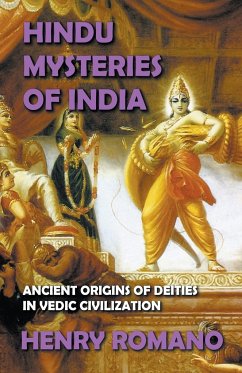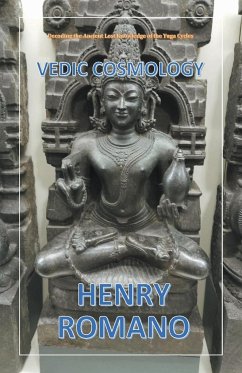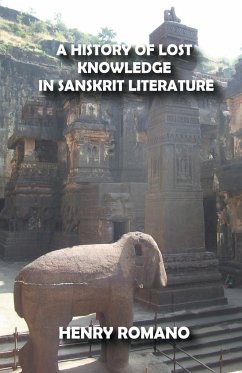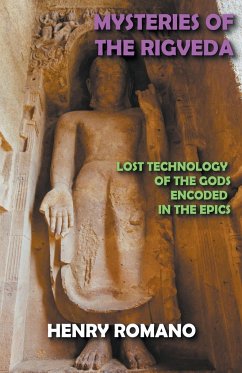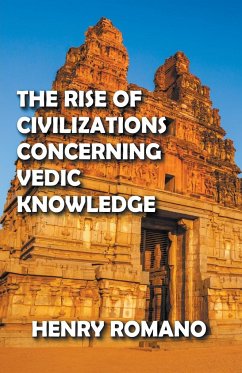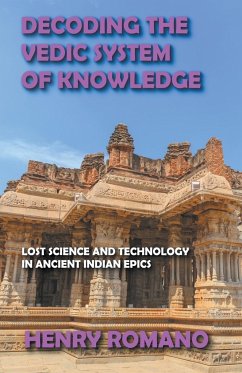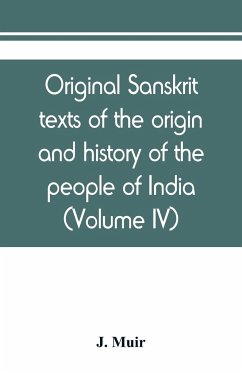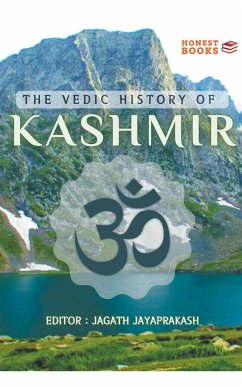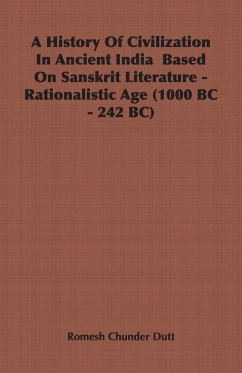
Sanskrit Mysteries of Vedic India
Versandkostenfrei!
Versandfertig in 1-2 Wochen
18,99 €
inkl. MwSt.
Weitere Ausgaben:

PAYBACK Punkte
9 °P sammeln!
Located in the city of Dwaraka, on the west coast of India in Gujarat, is the famous temple of Dwarakadhish, which is dedicated to Lord Krishna, the Lord of Dwaraka. Among the seven holy cities of India, it is considered to be one of the most sacred. Another list includes Ayodhya, Mathura, Haridwar, Varanasi, Kanchipuram, and Ujjain. It is believed that the original temple of Dwarakadhish was built by the great-grandson of Krishna, Vajranabha, on the ruins of Krishna's own palace, which survived the tsunami intact. The ancient, famed city of Dwaraka did exist during the Krishnavatara's reign s...
Located in the city of Dwaraka, on the west coast of India in Gujarat, is the famous temple of Dwarakadhish, which is dedicated to Lord Krishna, the Lord of Dwaraka. Among the seven holy cities of India, it is considered to be one of the most sacred. Another list includes Ayodhya, Mathura, Haridwar, Varanasi, Kanchipuram, and Ujjain. It is believed that the original temple of Dwarakadhish was built by the great-grandson of Krishna, Vajranabha, on the ruins of Krishna's own palace, which survived the tsunami intact. The ancient, famed city of Dwaraka did exist during the Krishnavatara's reign some five thousand years ago. It is no longer visible since it lies at the bottom of the ocean. The poets, writers, saints, and sages of ancient India have all praised the majesty and beauty of Dwaraka. Several Hindu texts, including the Srimad Bhagavatam, the Skanda Purana, the Vishnu Purana, Harivamsha, and the Mahabharata, refer to it as the "Golden City.". A verse in the Bhagavatam says: "The golden fort of Dwaraka City had its yellow glitter all around it, as if the flames of Vadavagni (the fire of eternity) had come out and tore the sea asunder." It was a thriving port and had a harbor on an island nearby. Dwaraka must have been the largest port on the Indian coast during the third millennium BC according to the number, size, and variety of stone anchors. Some fifty stone anchors are visible, but hundreds have been buried in the sediment. It is probably because of this that the city received its name. Dwaraka, which means "gate" in Sanskrit, was perhaps the gate that enabled ancient civilizations to access the ports. Cities of the West used seafaring to enter India's vast subcontinent. Ka in Sanskrit also means "Brahma," so perhaps it was devoted to Brahma, the creator of the Hindu trinity.




